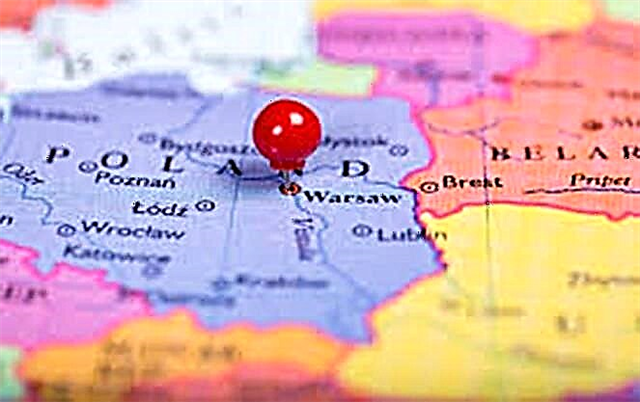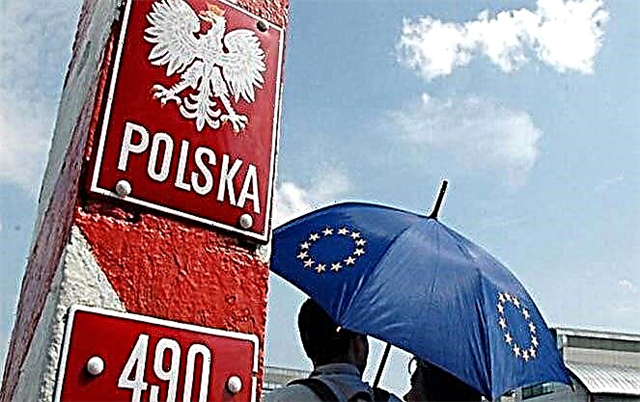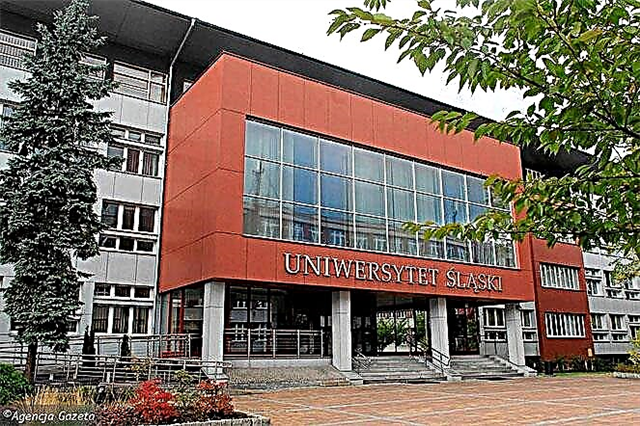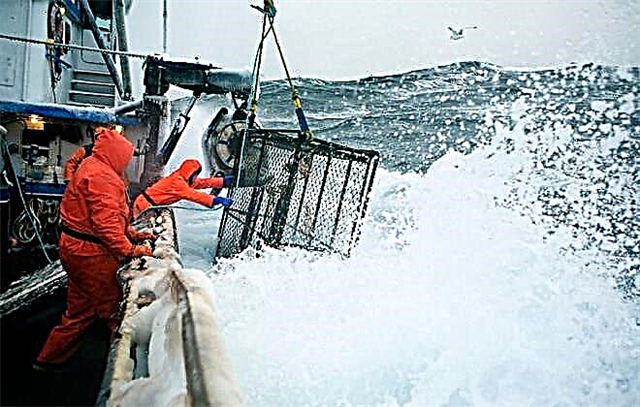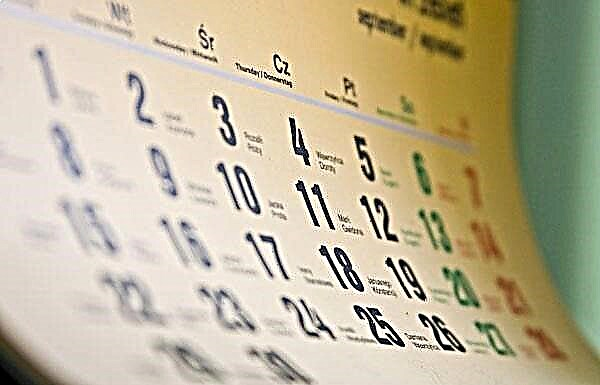Although Poland is a tourist country, the way of life and way of life in it is dictated primarily by national interests. And since most of the Poles are Catholics, religious holidays are very important for them. Accordingly, at this time it will not be possible to go shopping or use most of the services. In order not to get into a mess, it is better to know in advance when the holidays and non-working days are in Poland.

Weekend calendar
Poles have 13 legally established holidays, of which most are religious, 2 combine church and secular events, and only 3 are dedicated exclusively to civil dates.
During official holidays, large supermarkets and shopping centers, government and most private institutions are closed. However, cafes, gas stations, ticket offices, airports and train stations operate as usual.
National holidays in the country largely repeat the Catholic traditions and are conditioned by them, however, the days of the Constitution, Independence, the national army are added, as in any modern state:
January
- January 1 - New Year is combined with the church holiday of the Triumph of the Most Holy Theotokos and is also called Sylvester's Day.
- January 6 - Epiphany (feast of the Three Kings).
May
- May 1 - Labor Day.
- May 3 - Constitution Day of Poland.
- Green holidays (Pentecost - the day of the descent of the Holy Spirit).
- May 31 is the feast of Corpus Christi.
August
- August 15 - Day of the Polish Army and church holiday - Assumption of the Virgin Mary.
November
- November 1 - All Saints Day.
- November 11 - Independence Day.
December
- December 25-26 - Nativity of Christ.
Poland has a standard 5-day work week, but on Saturdays the most visited entertainment venues and shops are open even longer than usual. But since March 2021, Sunday has become an exception: the long-overdue law on the restriction of trade on the last day of the week began to operate, for Catholics, by the way, sacred.
On Sundays, shopping will turn out at the beginning and end of the month. The government plans to end Sunday trading altogether so that all residents of the country have the opportunity to adhere to their religious principles. The exception was left for 3 pre-holiday Sundays: 2 before Christmas and 1 before Easter, and 4, which fall on sales - at the end of January, April, June and August.
Outlets on Sundays will work on a holiday: bakeries, small cafes, flower and souvenir shops, and wholesale markets may not close. Representatives of a small or family business can work without the use of hired workers - the owner himself will stand behind the counter. Before Easter and on Christmas Eve (December 24), shops close at 14.00.
Holidays loved by Poles
The statutory weekends are not all opportunities to relax, have fun and enjoy the festive atmosphere, because there are many holidays loved and observed all over the world.
In addition to globally revered dates, such as the Day of the Fool or the Days of Saints Nicholas and Valentine, Poles have established their own holidays - National Education Day or Memorial Day.
Popular Polish Holidays
| Month | date | Event |
|---|---|---|
January (styczeń) | 01.01 | New Year, like all over the world |
| 06.01 | Epiphany is a Christian holiday reminiscent of the appearance of an angel to the Virgin Mary and informing her of the imminent birth of Jesus Christ. Official day off. At the same time, processions are held in honor of the Three Kings - the Magi, who brought gifts to the baby Jesus. | |
| 21.01 | Grandmother's Day - celebrated since 1964 | |
| 22.01 | Grandfather's Day - became popular a couple of years after the introduction of the previous holiday | |
| 27.01 | Holocaust Remembrance Day is not really a holiday, but it is important for Poles, because it was on their territory that Auschwitz, liberated on January 27, operated. 1945 g. | |
| February (luty) | 14.02 | Valentine's Day - aka Valentine's Day |
| March (marzec) | 08.03 | International Women's Day |
| April (kwiecień) | 01.04 | Easter is an important Christian holiday and a day off, the date of which changes every year. After the celebration of the Easter merry smigus-dyngus - Easter Monday |
| April Fool's Day, or April Fool's Day | ||
| May (maj) | 01.05 | Labor Day - Poles call it Mayuvka and go to rest |
| 02.05 | Day of the Polish flag and at the same time the Day of Polonia - Poles living abroad. | |
| 03.05 | Day of the Constitution of Poland, which was adopted in 1791 and is the first in Europe. | |
| 08.05 | Day of Remembrance and Reconciliation, Liberation from Fascism is not a day off | |
| Pentecost or Green Holidays | ||
| 26.05 | Mothers Day | |
| 31.05 | Corpus Christi | |
| August (sierpień) | 15.08 | The holiday of the Polish army is a reminder of the victory over the Red Army in 1920. |
| Day of the Assumption of the Virgin | ||
| October (październik) | 14.10 | National Education Day |
| November (listopad) | 01.11 | All Saints Day, dedicated to the remembrance of the ancestors |
| 11.11 | National Independence Day | |
| 30.11 | Andrzejki - traditions tell girls to guess on their betrothed on this day | |
| December (grudzień) | 06.12 | Mikolajki - St. Nicholas Day, famous for gifts and "tasty" traditions |
| 24.12 | Christmas Eve, Polish name "Vigil" - shortened working day | |
| 25-26.12 | Christmas | |
| 31.12 | Saint Sylvester's Day combined with the New Year |
There are special traditions associated with each of these holidays. And although not all of them are marked with weekends, Poles are waiting for holidays in order to hold parties, communicate with friends and family, give and receive gifts.
The merry Carnival is especially popular - the period from New Year to Lent, which Catholic Poland takes as seriously as possible. Since Easter and Pentecost have floating dates, weekends must be updated annually.
How to mark
All holidays are divided into church holidays with a familiar scenario that has not changed for centuries, and secular - how to celebrate them, everyone can decide for himself. Among them, those dedicated to family and loved ones stand out - although they are not designated as days off, they mean a lot to ordinary people.
The main one among family holidays is Mother's Day, which has been celebrated in Poland since 1923. Poles dedicate this day to mothers: they give gifts, say words that they sometimes forget to say in the turmoil of life, come to visit, arrange concerts in honor of loved ones.
Grandmother's Day and the following Grandfather's Day do not cause such a resonance. These are quieter, home holidays, from which kindness and comfort breathe. Although the Poles spend the day at work, it is customary to visit grandparents in the evening, to devote more time to them, and not to everyday affairs.
International Women's Day is celebrated in many countries and reminds of the struggle of women for their rights. Poles congratulate relatives, friends, colleagues, arrange merry parties.
March 10 is celebrated as Men's Day, which is gaining more and more popularity. This is a mirror image of the women's holiday - it's not for nothing that there is one day of difference between them.
Main church holidays
Interesting traditions fall on the Christmas-New Year (December and January) and Easter (April-May) periods.
Christmas starts with Vigil - Christmas Eve (December 24) and lasts 2 days.
- On Christmas Eve, a 12-course family dinner is necessarily held - according to the number of the apostles, and there is always a special bread - payment, which is shared by family members. One empty device is placed on the table - for a lost traveler, and a small gift is prepared for him.
- They spend 25 December with their family, and from the 26th until the New Year they visit friends and neighbors.
- New Year's Day - St. Sylvester's Day - is celebrated, as elsewhere: with fun and festivities.
- The last holiday is the Three Kings, which falls on the period of the Carnival: balls, dances and all kinds of entertainment. It ends before Great Lent.
After 40 days of Great Lent, the Easter holidays begin.Before Easter - Great Saturday, during which food is sacred in special baskets.
Easter (Wet) Monday is a time of merry dousing with water and various games, which makes it a favorite day for young people.
After 50 days, Green Holidays are celebrated, they are also Pentecost, then everyone is decorated with young greenery.
Soon - in late May - early June - Corpus Christi Day is celebrated, during which bright carnival processions are held.
Independence Day
On November 11, 1918, the First World War ended, and Mr. Józef Pilsudski assumed command over the newly created Polish army. In 3 days, he manages to expel German soldiers from the Kingdom of Poland, thus freeing the country from occupation. Also on November 11, he delivers the famous speech on the desire for independence and creates the Provisional People's Government of the Polish Republic.
The Poles did not gain independence immediately, but they began to openly fight for it. In 1937, a public holiday was introduced - albeit for a short time. After 2 years, the country was attacked by the Nazis, and then it became part of the USSR.
And only since the first elections in 1989, this holiday found a new breath as the day of Poland and its unification. It is now an official day off, with a speech by the president, flag raising and celebrations across the country. And after the official part, mass festivities and concerts are held, during which people take to the streets of cities to have fun together.
Conclusion
The calendar of Polish holidays has 13 public holidays and a number of unofficial dates that Poles celebrate with pleasure. The main holiday periods are Christmas (New Year) and Easter.
The Poles have more compulsory days off: the ban on trade on Sunday, which came into force in 2021, provided opportunities for employees of numerous cafes, restaurants and supermarkets to relax. Nevertheless, this does not affect the usual little joys - after all, small business leaders themselves can sell ice cream, pastries or souvenirs.


